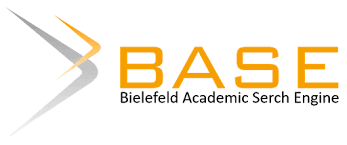MENINGKATKAN MOTIVASI DAN HASIL BELAJAR SISWA DALAM PEMBELAJARAN SISTEM PERSAMAAN LINEAR TIGA VARIABEL MELALUI MODEL PEMBELAJARAN PROBLEM BASED LEARNING KELAS X MIPA 1 SMA NEGERI 5 DENPASAR
Keywords:
learning model, problem based learning, motivation, learning outcomesAbstract
The purpose of this research is to improve the motivation and learning outcomes of class X MIPA 1 SMA Negeri 5 on the material of three-variable linear equation systems. This type of research is classroom action research (PTK). This research was conducted at SMA Negeri 5 Denpasar. Subjects in the research of class X MIPA 1 students of SMA Negeri 5 Denpasar in the even semester of the 2019/2020 academic year, and the object of this study was the understanding of the material of the three-variable linear equation system and student learning motivation towards the problem-based learning model. In this study, several cycles were used through four stages of the activity process which include (1) planning, (2) action, (3) observation, and (4) evaluation and reflection. The results showed that the application of the problem-based learning model could improve the students 'ability to answer questions in the three-variable linear equation system and there was a positive student learning motivation towards the application of the problem-based learning model to improve the students' ability to answer questions about the three-variable linear equation system.
Downloads
References
Alderman, M.K. (2004). Motivation for achievement possibilities for teacing and learning. Mahwah: Lawrence Erlbaum Associates.
Aman. (2011). Model evaluasi pembelajaran sejarah. Yogyakarta: Ombak.
Anderson, O. W. & Krathwool, D. R. (2001). A taxonomy for learning, teaching and assessing. A revision of Bloom’s taxonomy of educational objectives. New York: David Mckay Company Inc
Anggoro, M. Toha dkk. 2008. Metode Penelitian. Jakarta: Universitas Terbuka.
Anita Woolfolk. (2009). Educational psychology active learning edition (Terjemahan Helly Prajitno dan Sri Mulyantini) Yogyakarata : Pustaka Pelajar (buku asli diterbitkan tahun 2008)
Arends, R.I. (1997). Classroom instructional management, New York: The Mc. Graw-Hill Company.
Arikunto, S. 2014. Penelitian Tindakan Kelas. Jakarta: PT Bumi Aksara
Auliah Sumitro H, Punaji Setyosari, Sumarmi, 2017. Penerapan Model Problem Based Learning Meningkatkan Motivasi dan Hasil Belajar. Jurnal Pendidikan: Teori, Penelitian, dan Pengembangan Volume: 2 Nomor: 9 Bulan September Tahun 2017
Hamalik, O. 2013. Proses Belajar Mengajar. Jakarta: PT. Bumi Aksara.
Hosnan, M. 2014, Pendekatan Saintifik dan Kontekstual dalam Pembelajaran Abad 21. Bogor: Ghalia Indonesia.
Kamisa dan Aman, 2016. Penerapan Model Problem Based Learning Dalam Pembelajaran Sejarah Untuk Meningkatkan Motivasi dan Prestasi Belajar Siswa Kelas XI IPS 1 SMAN 1 Butar Sulawesi Tengah. Jurnal ISTORIA: Jurnal Pendidikan dan Sejarah by History Education Study Program, UNY
Keller, J. M. 2008. First Principles of Motivation To Learn And e3- Learning. Jurnal Distance Education. Volume 29, Nomor 2. (Online), (http://www.fp.ucalgary.ca/maclachl an/EDER_679.06_Fall_2008/Motiva tion_Keller_eL earning.pdf, diakses 17 Oktober 2016).
Ocak, A. M., & Akcytr, M. 2013. Do motivation tactics work in blended learning environments?: The ARCS model approach. International Journal Social, Science & Education, Vol 3, Nomor 4.
Rexi Agusmin, Nirwana, Nyoman Rohadi, 2018. Peningkatan Motivasi dan Hasil Belajar Siswa dengan Model Problem Based LearningBerbantuan Simulasi PhET di Kelas XI IPA-C SMAN 6 Kota Bengkulu. Jurnal Kumparan FisikaVolume 1 Nomor 2(2018
Riduwan. 2013. Skala Pengukuran Variabel-Variabel Penelitian. Cetakan Kesepuluh. Bandung: Alfabeta.
Savery, J. 2006. Overview of Problem Based Learning: Definition And Distinction. (Online), vol 1, 12 halaman. Tersedia: (http://docs.lib.purdue.edu/cgi/viewc ontent.cgi?article=1002&context, diakses 25 September 2016).
Setyosari, P. 2009. Belajar Berbasis Masalah (Problem-Based Learning). (Online), (http://tep.um.ac.id/berita- 223-belajar-berbasis-masalah problembasedlearning.html, diakses 04 April 2017).
Downloads
Published
How to Cite
Issue
Section
License
Copyright (c) 2020 LPPM Universitas Mahadewa Indonesia

This work is licensed under a Creative Commons Attribution-NonCommercial-ShareAlike 4.0 International License.
Hak cipta mencakup hak eksklusif untuk mereproduksi dan mengirimkan artikel ini dalam semua bentuk dan media, termasuk mencetak ulang, memotret, mikrofilm dan reproduksi serupa lainnya, serta terjemahannya. Reproduksi dari bagian manapun dari jurnal ini, penyimpanannya di database dan transmisinya dengan bentuk atau media apa pun, seperti salinan elektronik, elektrostatik dan mekanis, fotokopi, rekaman, media magnetik, dan lain-lain, akan diizinkan hanya dengan izin tertulis dari penerbit jurnal.






1_(1).jpg)











